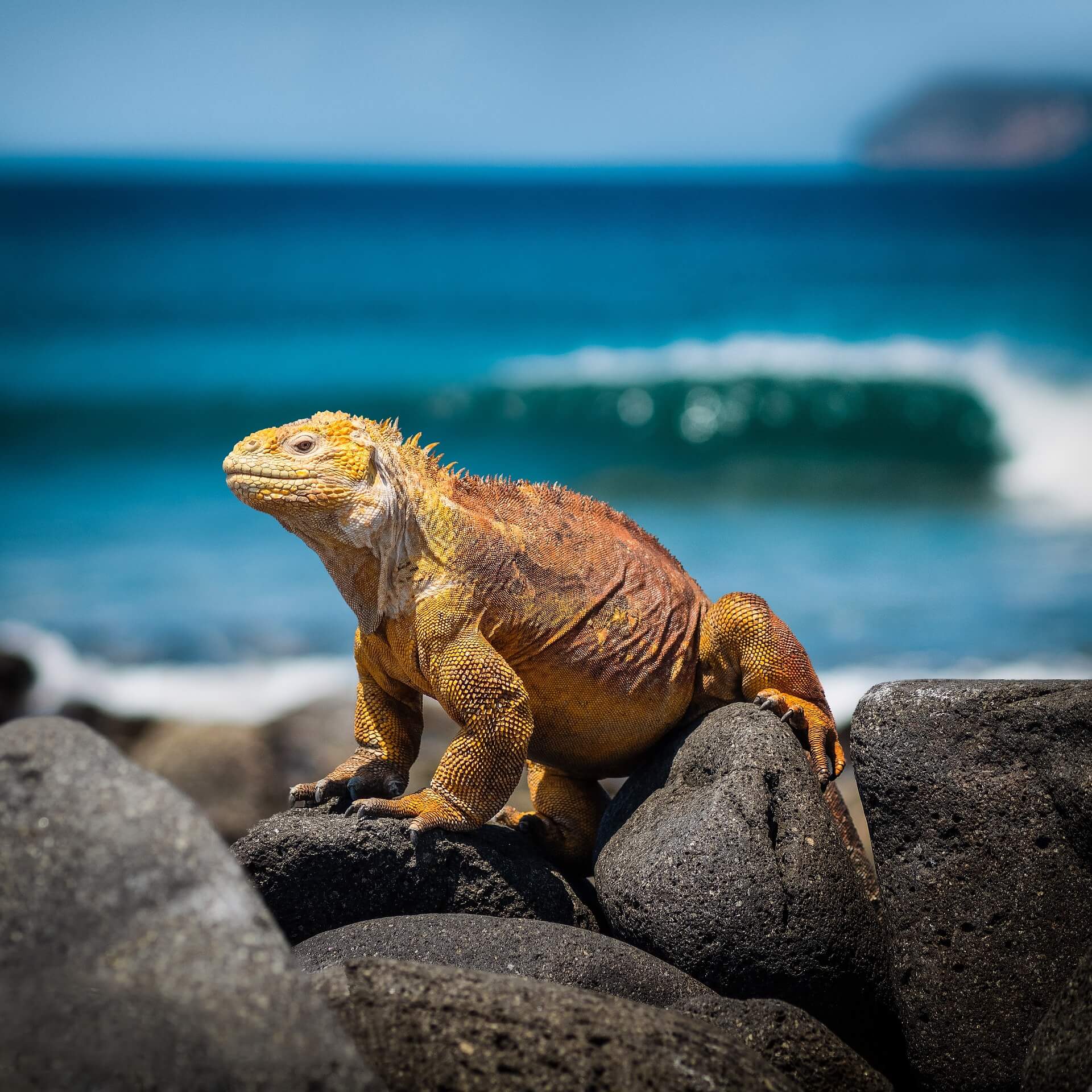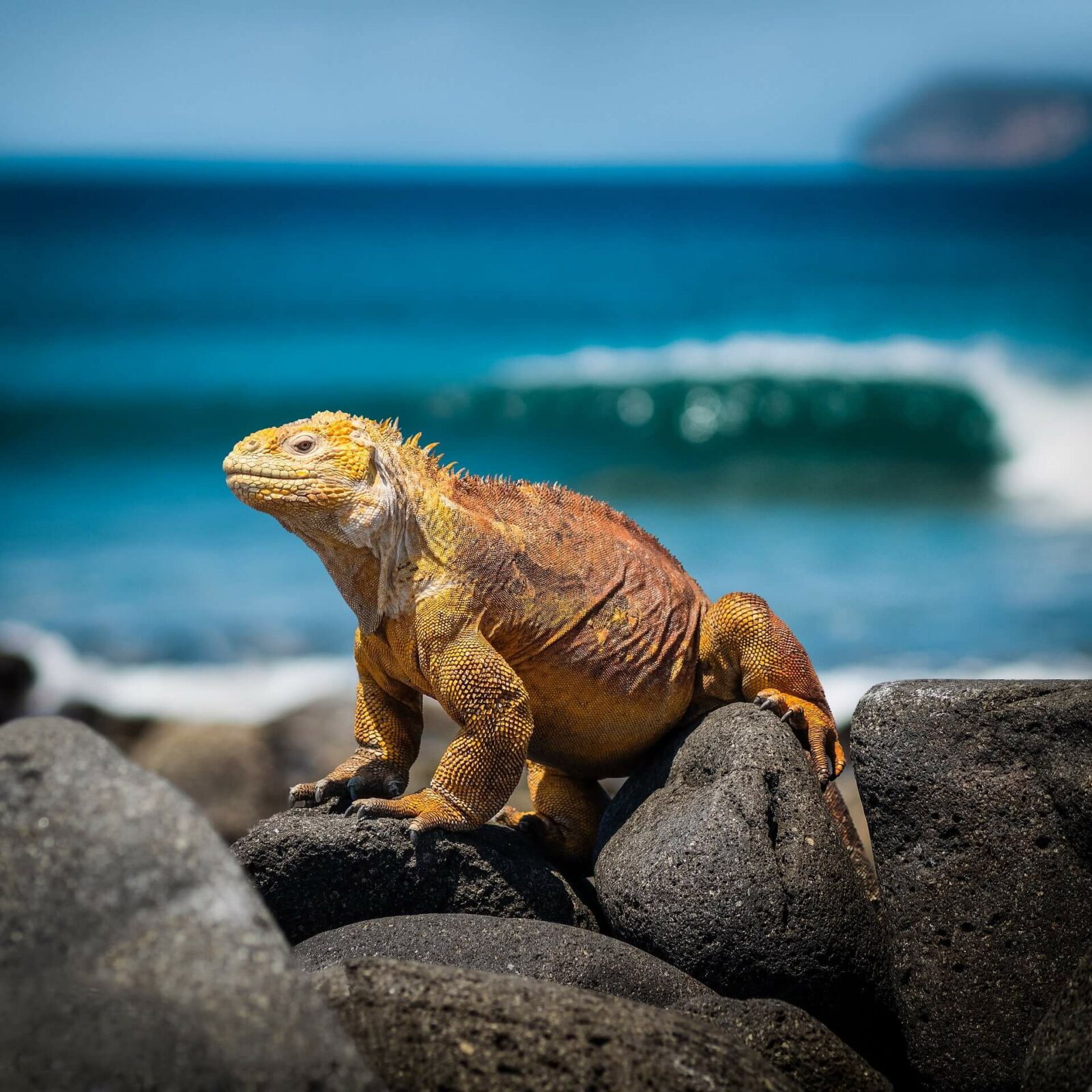Greetings from Academy Bay Diving, your gateway to the enchanted Galapagos Islands. Picture yourself standing by the sea, the turquoise waters teem with vibrant sea creatures while friendly sea lions and prehistoric-looking iguanas bask in the sun nearby. This is not a fantasy but the remarkable reality of the Galapagos Islands — a place where time seems to have stood still and nature thrives in its purest form.
As captivating as the Galapagos and other wildlife-rich destinations are, it is essential to pause and ponder the impact of our travel on these fragile ecosystems. A question that often arises is, can wildlife tourism ever be ethical?
This blog explores this pressing question to light the path to ethical wildlife tourism. Let’s embark on this journey of discovery and see how, with mindfulness and responsibility, wildlife tourism can be an amazing, life-affirming adventure.
And if you are planning your dream trip to the Galapagos Islands, check out our Galapagos Diving Trips and Courses and daily Galapagos Land Tours.

Understanding Wildlife Tourism
So, what exactly is wildlife tourism? Wildlife tourism encompasses travel and activities aimed at experiencing and appreciating animals in their natural habitats. This includes bird-watching, scuba diving to observe marine life, safari trips, and even strolling through natural reserves to witness the sheer diversity of life. Our own Isabela Island Tour and North Seymour day Tour are just two examples. Isabela Island is renowned for its Giant Tortoise Breeding Center, while North Seymour is home to numerous seabird breeding colonies.
In the Galapagos Islands, wildlife tourism has a storied past. The Islands received global recognition in the 19th century when Charles Darwin visited aboard the HMS Beagle. His observations here formed the basis for the theory of evolution by natural selection. But it wasn’t until the 1930s that boatloads of tourists began to arrive.
Fast forward to the present day, and the Galapagos Islands are a beloved destination for thousands of nature lovers seeking to tread in Darwin’s footsteps and beyond. Beyond the Galapagos, wildlife tourism is a thriving global phenomenon. From the Serengeti plains in Africa to the coral reefs of the Great Barrier Reef in Australia, the wonders of the natural world attract millions of travelers each year.
This form of tourism not only feeds our innate curiosity but also holds the potential to contribute positively to conservation efforts and local communities.

Ethical Concerns of Wildlife Tourism
As we traverse the clear waters of wildlife tourism, we must stop momentarily and consider the ethical concerns that have surfaced over the years. Like the delicate balance of an ecosystem, it’s crucial to recognize that irresponsible practices can ripple through and cause disruption.
One such concern is the potential impact on natural habitats. Without careful planning and regulation, the footprints we leave behind may be far heavier than we realize, sometimes leading to habitat destruction and pollution. The well-being of the animals is another serious concern. Enthralling as it is to witness animals in the wild, our presence mustn’t stress or harm them.
Would you enjoy uninvited guests gawking through your windows? Probably not! So, respecting the animals’ space and natural behavior is non-negotiable.

The Power of Ethical Wildlife Tourism
Education and conservation are key to positive, ethical tourism. When tours are designed with education in mind, travelers become ambassadors, armed with knowledge and a renewed reverence for the natural world. This, in turn, can inspire them to support conservation efforts and spread the word – conservation benefits further when revenue from ethical tourism is channeled into protecting and preserving these awe-inspiring destinations.
Additionally, local community involvement comes into play. When locals are engaged and empowered through tourism, they become allies in safeguarding their natural treasures. Just imagine the impact when the people who call these beautiful places home are given the tools and support to protect them.
Lastly, let’s not underestimate the power of awe. Experiencing the majesty of giant tortoises or the whimsical flutter of exotic birds can leave an indelible mark on our souls. This emotional connection can catalyze change, encouraging us to live sustainably and advocate for the planet.
Ethical wildlife tourism is not just possible but can be an extraordinary vessel for education, conservation, community engagement, and personal transformation. The key is to navigate with care, respect, and an unwavering commitment to the places and creatures that capture our hearts.
Academy Bay Diving: Leading by Example
Sustainability and responsibility have always been central to what we do. So, how do we play our part in ethical wildlife tourism? Our Sustainable Diving Packages are meticulously designed to minimize environmental impact.
By adhering to eco-friendly diving practices, we ensure that the stunning marine life of the Galapagos remains undisturbed and pristine. On terra firma, our wildlife walking tours take a gentle approach. We tread lightly, following paths that reduce habitat disturbance, and always maintain a respectful distance from our animal counterparts.
We wish to guarantee that these enchanted islands will endure for many future generations. Through our diving trips and daily Land Tours in the Galapagos, we hope to educate and share our passion with all our guests to spread the message of what makes the Galapagos such a special place.

Tips for Ethical Wildlife Tourism
First and foremost, become a mindful tourist. Take time to learn about the places you’re visiting, their ecosystems, and their inhabitants. This knowledge will enhance not only your appreciation but also your understanding of how to interact responsibly.
Secondly, heed the guidelines and best practices. This includes respecting marked paths, not feeding or approaching animals too closely, and leaving no trace behind. Your memories and photographs are the only treasures you should take back!
Thirdly, only travel with ethical operators. When choosing tour operators, look for those who prioritize sustainability, contribute to conservation efforts, and engage with local communities.
And finally, upon returning home, become an ambassador of ethical wildlife tourism. Share your experiences, the knowledge you’ve gained, and inspire others to embark on their journeys with responsibility!
Begin Your Galapagos Adventure with Academy Bay Diving
As we come to the end of this exploration of ethical tourism, it’s clear that wildlife tourism can be both ethical and extraordinarily rewarding, and impactful. The seas may sometimes be rough, but with careful navigation, respect, and commitment, we can all contribute to preserving the planet’s breathtaking beauty.
We at Academy Bay Diving extend a warm invitation for you to join us in experiencing the awe-inspiring Galapagos Islands responsibly and ethically! Check out our selection of Galapagos Islands Tour Packages and start planning your adventure. If you have any questions, don’t hesitate to get in touch.







